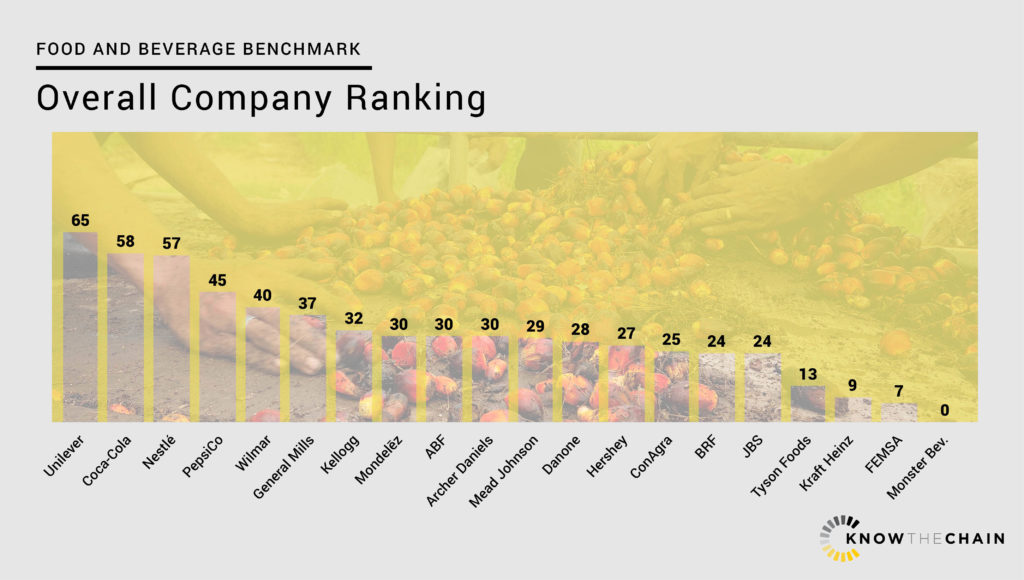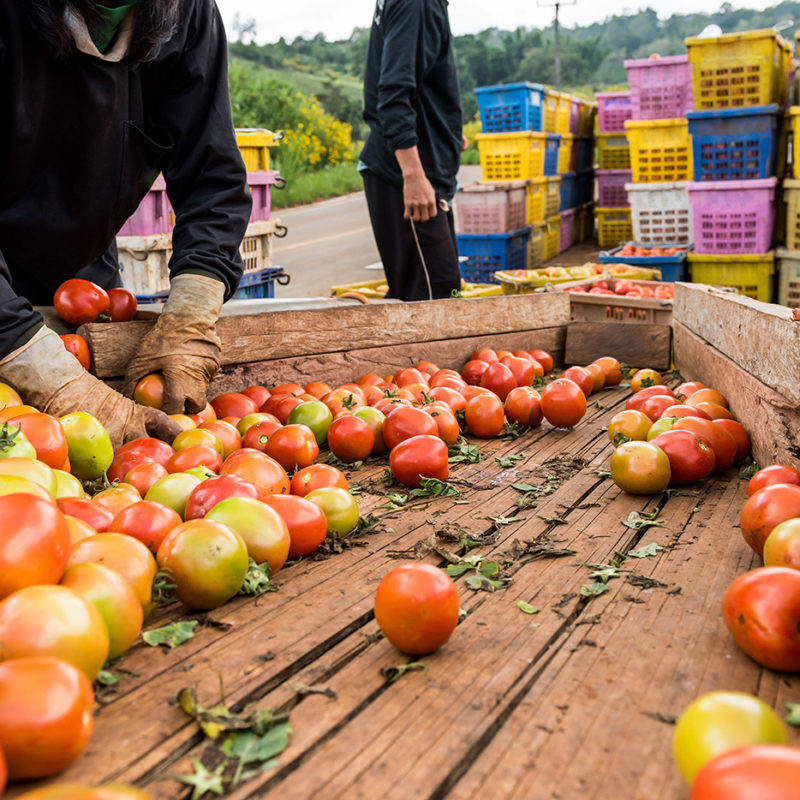Forced Labor Risks: Major Food and Beverage Brands’ Supply Changed Ranked by KnowTheChain
Americans don’t often think about the food they eat being tainted with modern slavery, but forced labor may be found in the food you eat and the drinks you consume. However, the more companies know about where their products come from and how they are made, the more likely it is they can correct abuses in their supply chains.
Today, KnowTheChain, an ATEST-endorsed resource to help businesses and investors understand and address forced labor issues within their supply chains, released its rankings of the 20 largest food and beverage companies’ efforts in a benchmark report. This follows the benchmark report released this June on the Information, Communications and Technology (ICT) sector.
 The average score of all companies across seven measurement areas is 30/100, with 17 companies scoring fewer than 50 points. While no company achieved full traceability, there are some encouraging findings, including that most companies have some processes in place to trace at least some aspects of their supply chains. More than 15 of the companies also have some labor standards built into their supplier contracts.
The average score of all companies across seven measurement areas is 30/100, with 17 companies scoring fewer than 50 points. While no company achieved full traceability, there are some encouraging findings, including that most companies have some processes in place to trace at least some aspects of their supply chains. More than 15 of the companies also have some labor standards built into their supplier contracts.
The report acknowledges that food and beverages supply chains have particular risks of forced labor, with women and migrants in the workforce particularly vulnerable to exploitation. (To learn more about this issue in the United States, see ATEST member Coalition for Immokolee Workers). Despite the risks on workers, companies are falling short in addressing problems in the recruitment processes. On a scale of 0-100, the average score for companies in this area is 10/100.
Read the full report and company scores>>
